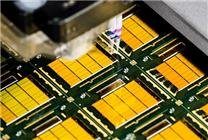Yushu Technology Unveils the Unitree H2 Humanoid Robot: A New Era of Robotics
Summary:
- Yushu Technology has launched the Unitree H2, a 180 cm humanoid robot weighing 70 kg with a bionic face design.
- The new robot aims to address feedback on aesthetic appearances from previous models, raising discussions around the "uncanny valley" phenomenon.
- CEO Wang Xingxing announced plans for mass production of the earlier released R1 model, emphasizing advancements in humanoid robotics.
On October 20, Yushu Technology unveiled its latest innovation, the Unitree H2 humanoid robot, that stands at 180 cm tall and weighs 70 kg. This model marks a significant advancement in robotics by incorporating an anthropomorphic bionic face, aimed at enhancing the robot’s human-like presence.
The Launch of the Unitree H2
The introduction of the Unitree H2 has sparked mixed reactions from the public. While some herald it as a remarkable step forward in humanoid robotics, others have expressed apprehension about its aesthetics, describing the bionic face as "scary" and reminiscent of the "uncanny valley effect." This phenomenon refers to the unsettling feelings humans experience when confronted with robots that are nearly, but not quite, human-like.
CEO Insights on Design Choices
During the IROS 2025 conference held on October 23, Wang Xingxing, founder, CEO, and CTO of Yushu Technology, delved into the rationale behind the H2’s design. He acknowledged the mixed feedback, stating that the heads of previous robot generations were overly simplistic. In response to consumer desires for a more lifelike appearance, the company took the bold step of introducing a bionic face in the H2 model. "Some people thought that a robot with a more face-like face was needed, so we added a bionic face to it," Wang explained.
Addressing Previous Models
Wang Xingxing also provided updates on Yushu’s earlier humanoid robot, the R1. He revealed that mass production is currently underway, with shipments expected to commence from late this year to early next year. This demonstrates Yushu Technology’s commitment to continual improvement and innovation in the field of humanoid robotics.
Understanding the Uncanny Valley
The concept of the "uncanny valley," first proposed by Japanese roboticist Masahiro Mori in 1970, explains the emotional responses humans have toward robots and non-human entities. According to Mori’s hypothesis, humans are generally inclined to feel positively toward robots that share human-like characteristics. However, this sentiment can quickly turn negative as robots approach but fail to fully achieve a human likeness. Subtle discrepancies can lead to perceptions of stiffness and eeriness, creating discomfort. As the likeness improves, human emotions can shift back to positivity, facilitating empathy.
Implications for the Future of Robotics
The unveiling of the Unitree H2 signifies more than just an enhancement in design; it symbolizes the transitional phase of robotics towards greater acceptance and integration into daily life. As the lines between humans and humanoid robots blur, understanding and addressing issues such as the uncanny valley will be essential for future innovations.
Conclusion
Yushu Technology’s release of the Unitree H2 humbles the threshold of humanoid robotics, merging functionality with a human-like appearance. As the industry progresses, the quest for creating robots that not only perform tasks but also resonate emotionally with users continues. With advancements such as the bionic face, Yushu aims to shape the future of interactions between humans and robots.
This exploration into the aesthetics and technology of the Unitree H2 raises important questions about our perceptions of robotics, but it also opens pathways for deeper engagement and collaboration in this rapidly evolving field. As we await further developments and feedback from end-users, the journey into humanoid robotics promises to be both intriguing and transformative.








